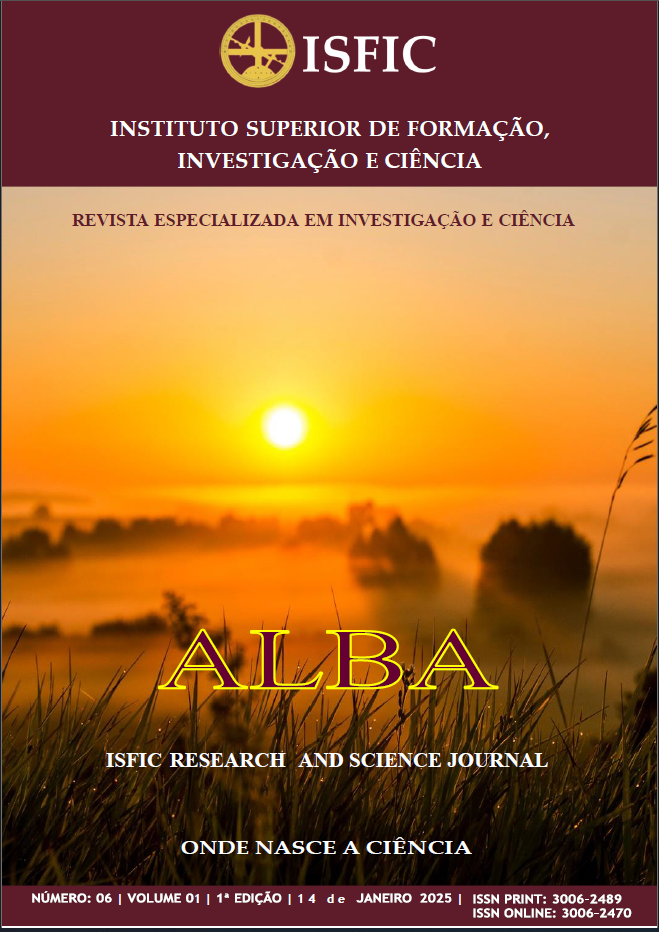Adaptations and challenges of hybrid teaching in times of post-election demonstrations in Mozambique (2024)
Keywords:
Challenges, Hybrid learning, Higher education, Demonstrations, MozambiqueAbstract
The Covid-19 pandemic has imposed major adversities, requiring changes in teaching and learning practices, as well as the expansion of remote teaching. This experience served as knowledge for the adoption of the hybrid teaching strategy, which combines face-to-face and remote classes with the use of digital information and communication technologies. Since the announcement of the results of the general elections, Mozambique has been experiencing a climate of tension, marked by protests that include the stoppage of car traffic, the closure of shops and educational institutions. In order to continue the teaching and learning process during this period, institutions have had to reinvent themselves. This study was conducted from a descriptive, case study perspective, to find out about the technological, economic and infrastructural adaptations and challenges faced by students at a Higher Education Institution (HEI) located in the city of Maputo, in order to maintain the learning of content during the period when face-to-face activities were suspended as a result of the post-election protests. In order to carry out the research, a questionnaire was drawn up and sent to the students at the institution, with a total of 210 subjects taking part in the study. The results show that hybrid teaching, in the context of the post-election demonstrations, was deficient and, as a consequence, did not promote equal and meaningful learning of knowledge by the students. This was due to the limited use of technological resources and, above all, the lack of internet access, which meant that the students' presence, even in virtual classes, was irrelevant, thus damaging the teaching-learning process.
Downloads
References
Beirão, H.A.F; Mutenda, F.M.; Fortes, A.G; Muiambo, J.S. (2023). Aprendizagem das Ciências Naturais durante a Pandemia: Problemas e Desafios dos Estudantes em Moçambique. Revista Brasileira de Pesquisa em Educação em Ciências, E41105, 1-30.
Bussotti, L. (2023). Moçambique: o papel das eleições na “transição inversa” (2009-2019). Cadernos de Estudos Africanos, Lisboa, n. 45, p. 61-83.
Ferreira, A. M. D., Oliveira, J. L. C. de, Souza, V. S. de, Camillo, N. R. S., Medeiros, M., Marcon, S. S., & Matsuda, L. M. (2020). Roteiro adaptado de análise de conteúdo - modalidade temática: relato de experiência. Journal of Nursing and Health, 10(1), 1–8.
Fortes, A. G., Mutenda, F. M., Muiambo, J. S., & Beirão, H. A. F. (2022). Educação híbrida em tempos de pandemia: desafios dos professores da área das Ciências Naturais em Moçambique. Revista Conexão Com Ciência, n.1, v.2.
Gonçalves, A. C. P. (2018). O direito à educação e políticas de expansão do ensino superior público em Moçambique: estagnação, privatização e exclusão (1986-2008). Avaliação: Revista da Avaliação da Educação Superior, 23(1), 37–57.
INE, Instituto Nacional de Estatística (2019). IV Recenseamento geral da população e habitação: Resultados definitivos Moçambique. Maputo - Moçambique: Instituto Nacional de Estatística.
MINED, Ministério da Educação de Moçabique (2014). Relatório do Estudo Sobre Género no Ensino Superior em Moçambique.
Silva, C.C.S.C. da Cenidalva, M.S.T. (2020). O uso das tecnologias na educação: os desafios frente à pandemia da COVID-19. Braz. J. of Develop., Curitiba, v.6, n.9p.70070-70079sep.2020.
UEM, Universidade Eduardo Mondlane (2014). Avaliação dos cursos pós-laborais – Relatório Final. Mimeo.
Yin, R. K. (2005). Estudo de caso: planejamento e métodos (2ª ed.). Bookman







